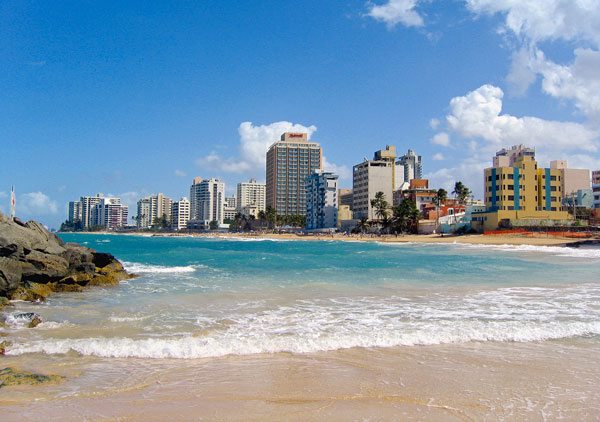
November 9th, 2017; The Intercept
As Puerto Ricans continue to power themselves with gas generators and homegrown grit, and clean energy companies and organizations fill in the energy emergency gap, the House Committee on Natural Resources met this week to plan the island’s energy future. According to The Intercept’s Kate Aronoff, “Rep. Louie Gohmert, R-Texas, made a statement that would be easy to miss if you weren’t listening closely: ‘Puerto Rico has the potential of being the Hong Kong of the United States, where businesses would flood in there.’”
Aronoff explains that Hong Kong is code for “an economy structured mainly around pleasing the private sector.” But what would be different about that? That’s what got Puerto Rico into this mess to begin with.
Nevertheless, with the arrogance of the dominant and no wisdom, that’s exactly what the US-assigned fiscal oversight board for Puerto Rico seems to be up to, “with a special eye towards fossil fuel development.”
Gohmert is on the fiscal oversight board, which has significant decision-making control over Puerto Rico’s future economy. If there is any doubt that the best interest of the Puerto Rican people is not of concern, in April 2016 Gohmert said,
Puerto Rico ought to be a model for how free markets work. It could be the United States’s Hong Kong, because there is no federal income tax…If it were not for all the government workers, there would be no need to have a…higher corporate tax than the United States itself has…I would think that if you could get it down to around 12 percent, business would be flocking.
Sign up for our free newsletters
Subscribe to NPQ's newsletters to have our top stories delivered directly to your inbox.
By signing up, you agree to our privacy policy and terms of use, and to receive messages from NPQ and our partners.
Never mind Puerto Rico’s status as a corporate tax haven is what got them into debt, or that the government has historically been the largest employer on the island, so gutting the taxes that fund it would further impoverish Puerto Ricans. (More than half the population on the island was poor before Hurricane Maria.)
Rep. Glenn Thompson (R-PA), co-chair of the House Natural Gas Caucus, and someone who “has taken more donations from oil and gas companies than from any other industry over the course of his career,” says, “Maria gives us the opportunity to bring Puerto Rico’s infrastructure into the 21st century. How can innovative energy technology, such as fuel cells that utilize our nation’s resource of clean-burning natural gas, be used to revitalize the Puerto Rico energy?”
Noel Zamot, who was tapped by the fiscal board to lead PREPA, the Puerto Rico Electrical Power Authority, the island’s largest company, which is also public, “with all the powers of a CEO,” responded affirmatively to Gohmert’s proposal. Other committee members were excited about Gohmert’s idea, too. Rep. Doug Lamborn (R-CO) says, “Renewables are great, but to provide that much electricity in that short a time is unrealistic.” So renewables are unrealistic, but fossil fuels are not?
PROMESA has already laid the groundwork for exception from Environmental Protection Agency regulations on the island, part of the suspend-democracy-in-crisis-mentality. But these crises are brought on by the lack of democracy and self-determination on the island, not because of them.
Nevertheless, libertarians are weighing in too. Benjamin Dierker, of the libertarian Foundation for Economic Education, wrote a blog in October calling for Puerto Rico to become an “economic freedom zone.” But, of course, he doesn’t mean economic freedom for Puerto Ricans, but for corporations, which apparently are oppressed. The reversals are mind boggling! He goes on, “The zone would flatten or suspend numerous taxes and regulations, prompting an immediate increase in productivity.” He specifically calls for the suspension of environmental regulations and federal minimum wage, in order to “capture business that would be regulated away in the States.” (Code for, “We can do s@#t here we can’t do in the US.” Yet.)
Desmond Lachman, a resident fellow at the American Enterprise Institute, agrees with Dierker. He advocates for “swapping large-scale debt forgiveness for corporate-friendly economic reforms.”
The other entity that will eventually weigh in to this catastrophe is Judge Laura Taylor Swain in New York, who is in charge of Puerto Rico’s bankruptcy case. Those of us out here rooting for Puerto Rico—the pressure is on and the pressure points are is becoming clearer day by day. We have work to do to prevent an evolution of the Shock Doctrine, if not to help Puerto Ricans, then to help yourselves. For these marginalized sites are labs for models that may one day soon come to a city, or town, near you.—Cyndi Suarez












